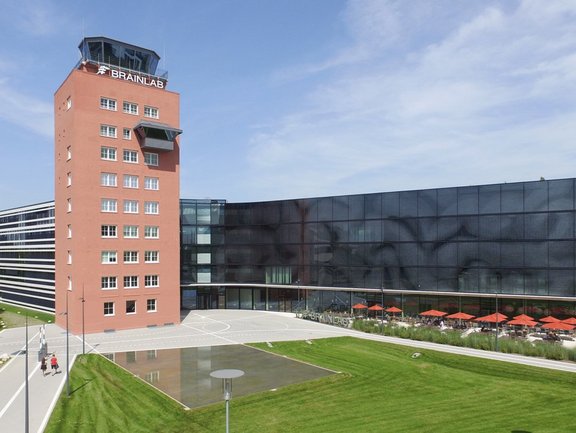We are very happy to be part of the Brainlab family. We are convinced that together we will make a huge impact on the future of healthcare – and this future has already begun!
What does this mean for mint Lesion™ users?
Brainlab and Mint Medical will work closely together and combine their strengths in the areas of digital health and life sciences. Combining the technologies of both companies will increase the automation of radiology reports through AI and anatomical mapping and create more actionable and holistic data.
For the detection and characterization of relevant findings, mint Lesion™ already guides its users in a structured way through the interpretation of medical image data and highlights particular aspects of a tumor entity. Currently, a significant portion of the manual input into mint Lesion™ consists of documenting the localization of findings in the affected organs and their relation to risk structures, such as vessels. In the future, Brainlab's Anatomical Mapping technology will take care of filling in this information - significantly speeding up the reporting process and ensuring a consistent terminology.
Manually tracking findings across numerous imaging studies requires a lot of patience in routine clinical work as well as in clinical trials, especially when working with oncological image data. By mapping pathologies and other structures with the Anatomical Mapping technology, mint Lesion™ users will enjoy greater precision in retrieving and appropriately representing findings over time. This is particularly significant when structures are deformed, when a rigid registration does not always provide the best results.
Through our collaboration, mint Lesion™ users will also have improved opportunities to link data across departments in the future. They will benefit from Brainlab's expertise in dealing with established standards (DICOM, FHIR, HL7) for the integration into clinical environments, such as the hospital information system (HIS). The clinical processes will become even more efficient, as data which was stored in different locations is brought together and automatically filled into specific fields within structured forms. This will enable the dispersion of radiological diagnostic information in the best possible way across disciplines, thereby creating a new kind of quality in radiologists’ cooperation and communication with their clinical colleagues.
How do the CEOs of Brainlab and Mint Medical describe our partnership?
“Brainlab brings to Mint a highly compatible entrepreneurial culture, enabling us to more rapidly enhance, scale, and deploy our technology,” says Matthias Baumhauer, President of Mint Medical. “We are excited about the tremendous opportunities for both our clinical research and clinical routine users.”
“The transformation of our healthcare system is currently focused in large part on standardizing clinical data through a coding system,” commented Stefan Vilsmeier, President and CEO, Brainlab. “However high quality and consistency of such data requires a validated, reproducible, and structured digital process, for which Mint Medical is setting the benchmark.”
About Brainlab
Brainlab is a digital medical technology pioneer founded in 1989 and headquartered in Munich. The company employs more than 1500 people in 20 offices around the globe. Brainlab serves physicians, medical professionals and their patients in over 5600 hospitals in 116 countries.
Brainlab creates software-driven medical solutions that digitize, automate and optimize clinical workflows for neurosurgery, spine, trauma, craniomaxillofacial (CMF), general and vascular surgery as well as radiotherapy and radiosurgery. Core products center around surgical navigation, radiotherapy, digital operating room integration, and information and knowledge exchange. The Brainlab open framework operating system will allow third parties to develop medical applications to further advance the field of spatial computing and mixed reality.
Brainlab is dedicated to creating an impact in healthcare. The company connects opportunities from emerging digital technologies to transform healthcare at scale and help improve the lives of patients worldwide.



